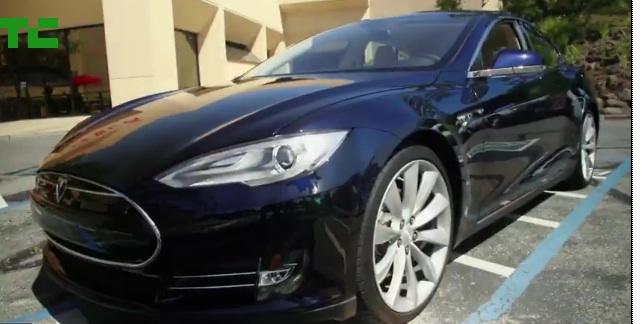Tesla Motors CEO and founder Elon Musk definitely isn’t the best guy to try to pull a fast one on. The visionary entrepreneur set Twitter a titter when he claimed earlier this week that New York Times writer John Broder had fudged details about the Tesla Models S car’s range in cold weather, resulting in what he termed a “fake” article. Musk promised evidence, and now he has delivered, via the official Tesla blog.
In keeping with his brief description of what was wrong with the review from his original tweet, Musk laid out how vehicle logs (standard practice after Tesla ran into issues with Top Gear, which dramatized a breakdown where none actually existed) showed that the car Broder was driving for his article was improperly charged, took an unscheduled side trip and essentially seemed to have been set up to fail.
Musk breaks down what went wrong in a number of bullet points, but basically Broder’s car never ran out of juice completely; was charged to a level which he knew wouldn’t be enough to get to his destination at one point; actually exceeded its anticipated range; was driven past charging stations which could’ve helped it finish the journey; and was taken for a lengthy detour through Manhattan not included in the original trip plan.
Other problems add to the reported deception, including climate control settings that run counter to Broder’s stated claims in the article about what he did with in-car heating (turned up the temp when he said he turned it down). The smaller details aren’t necessarily the most consequential, but the fact that Musk has record of even these smaller contradictions in his test vehicle’s logs helps to paint a picture of a writer who seems to have been blatantly gunning for Tesla from the start.
Musk says that Broder altered details and the conditions of the test to help fit with his pre-existing opinion, which he arrives at thanks to a quote from Broder in an article published in 2012. Broder essentially attempts to deflate the sunny image of a future filled with electric cars, claiming that “the state of the electric car is dismal, the “victim of hyped expectations, technological flops, high costs and a hostile political climate.” To be fair, in that article Broder also goes on to give plenty of space to electric car supporters, too, and even gives the last word to Chris Paine, the documentary filmmaker behind Who Killed the Electric Car?, ending on Paine’s implied accusation that the oil and gas industry are behind stalling the electric future of car transport.
But overall, Musk’s evidence is pretty damning, especially backed up as it is by solid data from the Model S itself. He ends by calling for the NYT to launch an investigation into the article and its writing, and after an attack like this, I’d guess the NYT would have to do just that in order to be able to come up with a satisfactory response.
